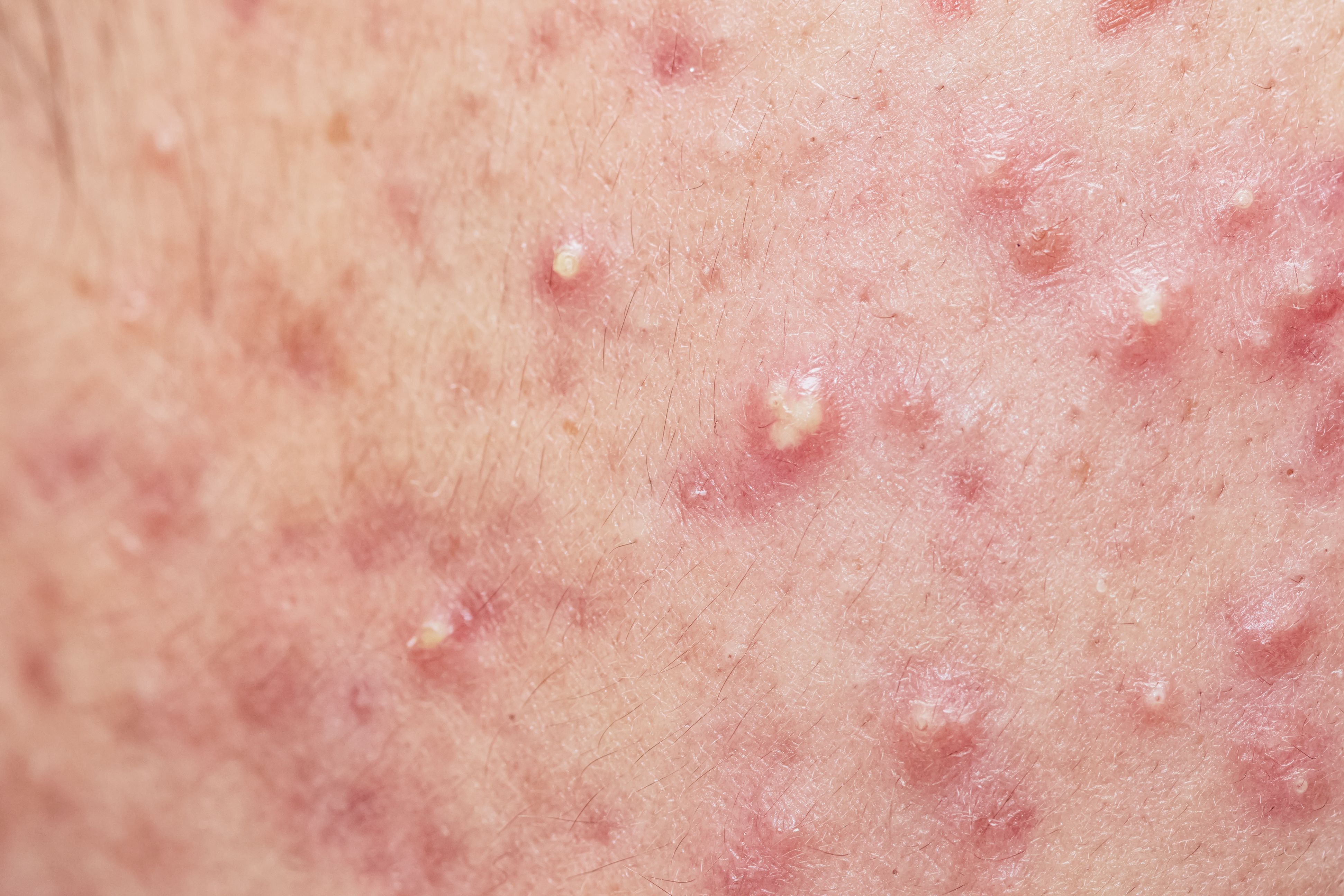- General Dermatology
- Eczema
- Chronic Hand Eczema
- Alopecia
- Aesthetics
- Vitiligo
- COVID-19
- Actinic Keratosis
- Precision Medicine and Biologics
- Rare Disease
- Wound Care
- Rosacea
- Psoriasis
- Psoriatic Arthritis
- Atopic Dermatitis
- Melasma
- NP and PA
- Skin Cancer
- Hidradenitis Suppurativa
- Drug Watch
- Pigmentary Disorders
- Acne
- Pediatric Dermatology
- Practice Management
- Prurigo Nodularis
Article
PROMs Rarely Used in Randomized Clinical Trials for Acne and Rosacea
Author(s):
Patient-reported outcome measures ensure patients' experiences are documented during new treatments.
A recently published online study in the Journal of American Medical Association: Dermatology examined the use of patient-reported outcome measures (PROMs) in acne and rosacea randomized clinical trials (RCTs). Researchers found that PROMs were not commonly used in acne and rosacea RCTs and were rarely used as a primary outcome measure. Increasing the inclusion of patient-centered outcomes in RCTs can help accurately record patients’ experiences during new or continued treatment.
Like many other dermatologic conditions, acne and rosacea can have significant impacts on quality of life. PROMs are a valuable tool to make patients’ voices heard in pivotal RCTs. Currently, there is limited data on the use of PROMs in RCTs for acne and rosacea.
To collect data, researchers performed a systematic literature search in January 2022 using the following databases:
- PubMed
- Embase
- Cochrane Central Register of Controlled Trials
- Cochrane Database of Systematic Reviews
According to the study, all phase 2, 3, and 4 RCTs that evaluated the efficacy and safety of therapies for acne and rosacea were considered for inclusion. No restrictions were placed on the age or gender of trial participants. Only studies published in English were included. Nonrandomized controlled trials and studies evaluating extracts or nutraceuticals were excluded. Full-text articles published from December 31, 2011, through December 31, 2021, were included.
PROMs were separated into 3 identifiable groups: disease-specific, dermatology-specific, and generic. Primary outcomes included the percentage of trials that included at least one PROM, the percentage of trials that included at least one disease-specific PROM, and the percentage of trials that included at least one dermatology-specific PROM. Secondary outcomes included the percentage of studies that included PROMs as a primary outcome, characterization of the PROMs used, and evaluation of PROM inclusion over the study period.
Out of 206 selected studies, 79% focused on acne and 21% focused on rosacea. The research shows that PROMs often were not included in the acne and rosacea RCTs analyzed, and PROMs were rarely used as a primary outcome measure. Despite growing interest in PROM use in both RCTs and clinical practice, there has been no significant use of PROMs in RCTs for acne and rosacea in the past 10 years.
Researchers believe there is a missed opportunity to record patients' perspectives in pivotal acne and rosacea trials. Researchers also believe the infrequent use of PROMS in RCTs may be slightly related to the US Food and Drug Administration (FDA) guidelines that do not require RCTs to include PROMs as an outcome measure.
Rosacea trials included PROMs assessing signs and symptoms more than acne trials, which had a greater emphasis on PROMs assessing the quality of life. The difference between the two may be related to redness, a prominent symptom in rosacea, which is also easier to describe and measure than the diverse morphologies of acne lesions and scars.
To conclude, researchers stated that more research is needed to examine how to best improve the incorporation of PROMS in RCTs, and if FDA guidelines should be revised.
Reference
Ly S, Miller J, Tong L, Blake L, Mostaghimi A, Barbieri JS. Use of Patient-Reported Outcomes in Acne Vulgaris and Rosacea Clinical Trials From 2011 to 2021: A Systematic Review. JAMA Dermatol. Published online October 26, 2022. doi:10.1001/jamadermatol.2022.3911




